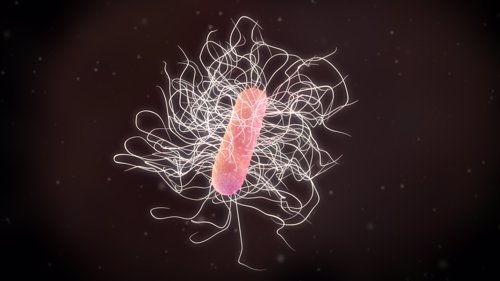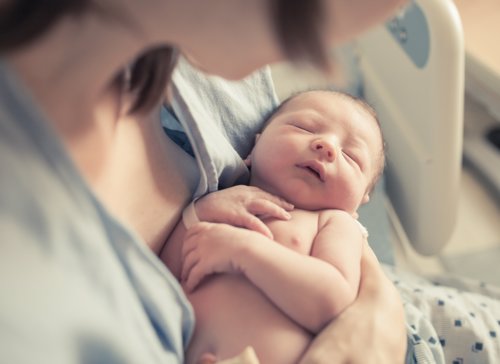
News
our interview with dr mona bajaj-elliott
Following her PhD (with Sir Tom Blundell), Dr Mona Bajaj-Elliott spent several years working on the structure/function of growth factors at CRUK, King’s College London and Industry. She returned to academia to study wound healing in Inflammatory Bowel Disease prior to gaining an academic post at Queen Mary (UoL) exploring mucosal defence against gut pathogens including H. pylori, C. jejuni and C. difficile.
Since her tenure at Great Ormond Street Institute of Child Health, her focus has been to better understand how the gut microbial-local immune axis contributes to infant and paediatric homeostasis with a specific focus on allergy and Graft versus Host Disease, the latter a major cause of mortality post-transplantation.
Mona is currently the chair of the British Society of Gastroenterology (BSG) Gut Microbiome for Health expert panel and a member of the BSG ‘Food and Function’ clinical research group.


1. What led you to pursue research around gastrointestinal health and the microbiota?
Diarrhoeal diseases killed 370,000 children below the age of 5 years in 2019. Although childhood diarrhoeal-mediated mortality is not a major concern in the developed world, Clostridium difficile infection and associated diseases (CDAD) in the elderly is a public health concern in high-income countries, such that faecal microbial transplantation (FMT) is becoming routine for the treatment of CDAD. Such success clearly points to improving our understanding of the role and contribution of resident gut microbiota not just for gastrointestinal but overall health. The gut microbiota can also act as a reservoir facilitating the spread of antimicrobial resistance genes. Taken together, my recent pursuit is to better understand the role of the gut microbiota in paediatric health and disease.
2. You presented some interesting findings around early life microbiota and specifically the impact of short chain fatty acid levels in children at a conference last year. Could you tell us what evidence we currently have around butyrate in the gut and its effects in children?
I shared intriguing findings from our 2019 Allergy paper that showed the allergic infant microbiota expressed significantly higher levels of butyrate compared to healthy controls, interestingly this increase was recapitulated in a mouse model of atopy. Our study raises the hypothesis that butyrate may modulate Th2 outcome and IgE levels. This led me on the hunt for published information on infant butyrate, IL-5 and IgE. It was gratifying to come across Dr Crestani’s paper showing an association between IL-5 and IgE in infants (doi: 10.1016/j.jaci.2007.05.033) and Dr Rothenburg’s research where they identified a role for SCFA in promoting oesophageal oesophagitis (doi: 10.1172/JCI125917). These albeit, very limited studies, do suggest that the SCFAs’ may play an executively balanced act in the first few months of life.
3. In 2019, you published a paper titled ‘Gut microbiota from infant with cow’s milk allergy promotes clinical and immune features of atopy in a murine model’. What could future research on Cow’s milk allergy and the gut microbiota explore further? Could microbiota-focused interventions be the key to modulating allergies in infants?
The early gut microbial colonisers in a newborn play a critical role in educating the local (and systemic) immune system. For this to occur successfully, early influx of exaggerated amounts of butyrate may prove to be detrimental for this initial ‘immune education’. There is an urgent need to test this hypothesis. In addition, there may be more promising, as yet unidentified metabolites that may execute appropriate immunity in early life.
There is potential for microbiota/nutrition-based interventions for allergy in infants but the research question requires greater attention.

4. You have conducted a lot of research throughout your career – which projects triggered your interest in the gut microbiota research?
For many years, I focused on how gut pathogens including H. pylori, C. jejuni and C. difficile manipulate host immunity for their own benefit. For example, LPS of H. pylori is 1000-fold less active than that of E.coli a perfect strategy to hide from the immune system. Studying the microbiome is just an extension to better understand what drives bacteria to commensalism versus pathogenicity.
5. What are some challenges that you have faced as a researcher and how have you dealt with them?
I am envious (in a healthy way!) of the early research career researchers as they have amazing technology and tools at their disposal, what a way to ask great questions. All challenges fall sideways as long as the passion for your research question remains.
6. What do you enjoy the most about your job as a researcher and academic?
The ‘intellectual’ chase
7.If you could share a piece of advice to aspiring researchers, what would it be?
Scientific endeavour has to be fun! The day it’s not fun, it is time for a new challenge!